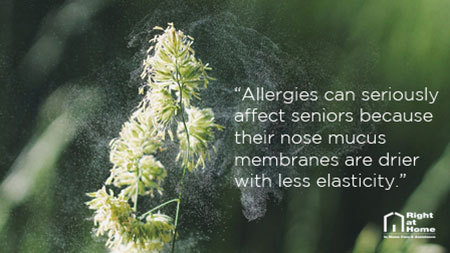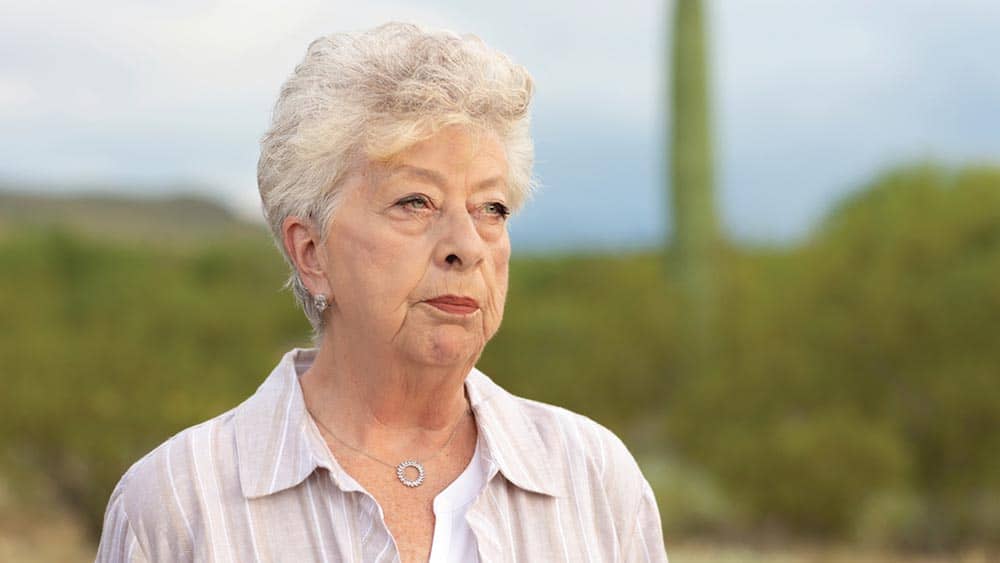

Helping Seniors With Seasonal Allergies
Seasonal nasal allergies strain the body: runny nose, sneezing, sore throat, itchy eyes and fatigue are some of the resulting symptoms. Extreme weather swings, particularly in spring and fall, kick up the production of pollen, the fine powder released by flowering plants. Spread by the wind, pollen settles in a person’s skin, nose and lungs and can cause an allergic reaction. Other common nasal allergens include animal dander and dust mites.
The Centers for Disease Control and Prevention reports that more than 7 million Americans 65 years of age and older suffer with hay fever, also known as allergic rhinitis. Allergies can seriously affect seniors because their nose mucus membranes are drier with less elasticity, increasing the risk of chronic nasal congestion. Allergens can spell double trouble for the elderly whose health is already compromised by other conditions like asthma, heart failure and chronic obstructive pulmonary disease (COPD).
To help seniors manage nasal allergy season, ensure they check with their doctor about the use of antihistamines, decongestants and nasal sprays. In older adults, allergy medications may trigger anxiety, confusion, dizziness, blurred vision, urinary retention and other side effects.
The following tips can help lessen pollen exposure:
- Avoid outdoor areas with lots of grass, trees and foliage.
- Shower or bathe after coming in from outside, and wash hands and change clothes after handling animals.
- Keep windows closed at night to prevent pollens and molds from drifting inside.
- When riding in cars, keep windows closed.
- To keep indoor air clean, use an air conditioner and dehumidifier.
- Pay attention to local pollen counts by visiting the American Academy of Allergy, Asthma, and Immunology. Avoid outdoor activity when counts are high.
- Use a clothes dryer instead of an outdoor clothesline where pollens can collect on damp clothes.
- Eat healthy. Some studies show foods higher in omega-3 fatty acids (e.g., fish, almonds and pumpkin) and probiotics found in many yogurts can lower allergic rhinitis symptoms.
What helps your senior loved one the most with high pollen season?
Latest Resources for Seniors
Featured article








